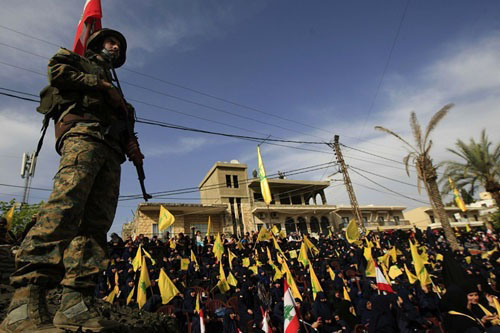FPI / June 16, 2019
Only months after the signing of the 2015 Iran nuclear deal, British security forces found several Hizbullah weapons caches which held thousands of explosives in northwest London.
The discovery was kept “hidden from the public” so as not to “raise eyebrows,” the Daily Telegraph reported on June 10.

Meanwhile, the United States has imposed new sanctions on an Iranian oil giant with links to the Islamic Revolutionary Guard Corps (IRGC).
The U.S. Treasury Department announced sanctions against Iran’s Persian Gulf Petrochemical Industries Company (PGPIC), which accounts for 40 percent of Iran’s petrochemical-production capacity and 50 percent of its petrochemical exports.
Iran’s petroleum and petrochemical industries “have been serving for the last 40 years as a kind of institutionalized slush fund for the IRGC,” a Treasury official said. The Trump administration recently designated the IRGC as a terrorist organization.
In the Hizbullah discovery in London, British police and the MI5 intelligence service, following the tip of a foreign government, discovered thousands of disposable ice packs containing three tons of ammonium nitrate, the Daily Telegraph report said, citing security sources.
The report added that no attack was imminent and the ammonium nitrate had not been weaponized.
An Israeli media report cited officials as claiming that Israel was the foreign entity that provided the intelligence leading to the discovery.
The report said that then-Prime Minister David Cameron and Interior Minister Theresa May were informed of the discovery, but parliament members who were debating at the time whether to ban Hizbullah in Britain were not.
Hizbullah’s militant wing was blacklisted at the time, but the Iran-funded Lebanese Shi’ite group in its entirety was only added to Britain’s terror list earlier this year.
Since its last fought war in 2006, Hizbullah has strengthened its military capabilities significantly with an estimated arsenal of some 100,000 and 120,000 short-and-medium-range missiles and rockets, as well as several hundred long-range missiles trained on Israel.
Full Text . . . Current Edition . . . . Subscription Information
Intelligence Brief __________ Replace The Media
